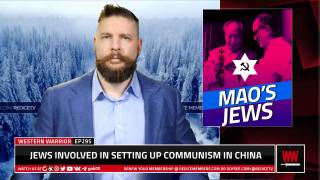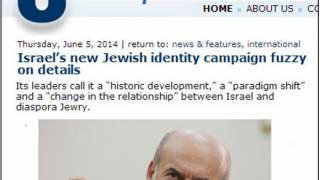A Senator’s Gift to the Jews, Nonreturnable
Source: nytimes.com
The canon of Hanukkah songs written by Mormon senators from Utah just got a little bigger.Senator Orrin G. Hatch, a solemn-faced Republican with a soft spot for Jews and a love of Barbra Streisand, has penned a catchy holiday tune, “Eight Days of Hanukkah.”
The video was posted Tuesday night on Tablet, an online magazine of Jewish lifestyle and culture, just in time for Hanukkah.
Eight Days of Hanukkah from Tablet Magazine on Vimeo.
Known around the Senate as a prolific writer of Christian hymns and patriotic melodies, Mr. Hatch, 75, said this was his first venture into Jewish music. It will not be his last.
“Anything I can do for the Jewish people, I will do,” Mr. Hatch said in an interview before heading to the Senate floor to debate an abortion amendment. “Mormons believe the Jewish people are the chosen people, just like the Old Testament says.”
In short, he loves the Jews. And based on an early sampling of listeners, the feeling could be mutual.
“Watching Orrin Hatch in the studio, I said to myself that nothing this great will ever happen to me again,” said Alana Newhouse, the editor-in-chief of Tablet.
Set against a bouncy synthesizer beat, the song begins:
“Hanukkah, oh Hanukkah,
The festival of light/
In Jerusalem,
The oil burned bright.”
Adding to the project’s only-in-America mishmash is that the song is performed by Rasheeda Azar, a Syrian-American vocalist from Indiana. But Mr. Hatch is the song’s unquestioned prime mover, or macher. He is featured in the video, sitting stoic in the studio, head bobbing slightly, donning earphones and contributing backup vocals.
The song’s contagious refrain goes:
“Eight days of Hanukkah,
Come let’s celebrate.
Eight days of Hanukkah,
Let’s celebrate tonight, Hey!”
At one point, Mr. Hatch unbuttons his white dress shirt to expose the golden mezuzah necklace he wears every day. Mezuzahs also adorn the doorways of his homes in Washington and Utah. Mr. Hatch keeps a Torah in his Senate office.
“Not a real Torah, but sort of a mock Torah,” he said. “I feel sorry I’m not Jewish sometimes.”
The genesis of “Eight Days of Hanukkah” came a decade ago. Mr. Hatch was considering a run for the presidency in the campaign eventually won by George W. Bush (Mr. Hatch wound up writing a song for Mr. Bush’s second inaugural, titled “Heal Our Land”). He was discussing his love of songwriting with the writer Jeffrey Goldberg, a well-known mensch-about-town in Washington with a longtime grievance against “the general lameness of Hanukkah music.” (As a columnist for The Jerusalem Post years earlier, Mr. Goldberg had organized a “write-a-new-song-for-Hanukkah contest” that attracted 200 entries, most of them — in his estimation — “dreck.”)
He asked Mr. Hatch if he would write a Hanukkah song. The senator said he would, but never did.
Mr. Goldberg, who now writes for The Atlantic, mentioned the decade-old promise in his blog last year a few days before Christmas. A day later, Mr. Hatch sent him an apologetic e-mail message that included the first five stanzas of “Eight Days of Hanukkah.”
“I am willing to serve as a Semitic song muse for any United States senator,” Mr. Goldberg said. “God forbid any of the Jewish senators write a Hanukkah song.”
Mr. Hatch enlisted his collaborator, Madeline Stone, a Jewish songwriter from the Upper West Side of Manhattan who specializes in Christian music. “I’m a pretty liberal Democrat,” Ms. Stone said. “But it became more about the music and the friendship for me and Orrin.”
The song was recorded in October at a studio in Manhattan.
Mr. Hatch speaks of “Eight Days of Hanukkah” as a gift to the Jewish people. “This song means more to me than most of the songs I have ever written,” he said. “People need to know the story of Hanukkah. It was a miracle.”
He said his ultimate goal would be for his idol, Ms. Streisand, to perform one of his songs. “It would be good for her and good for me,” Mr. Hatch said, while acknowledging that given her outspoken liberalism, that union might require another miracle.
Article from: NYTimes.com
"A small band of people led the way
Through the darkest night they prayed.
Seeking religious freedom,
Did more than just survive -
They defeated a mighty empire."






















